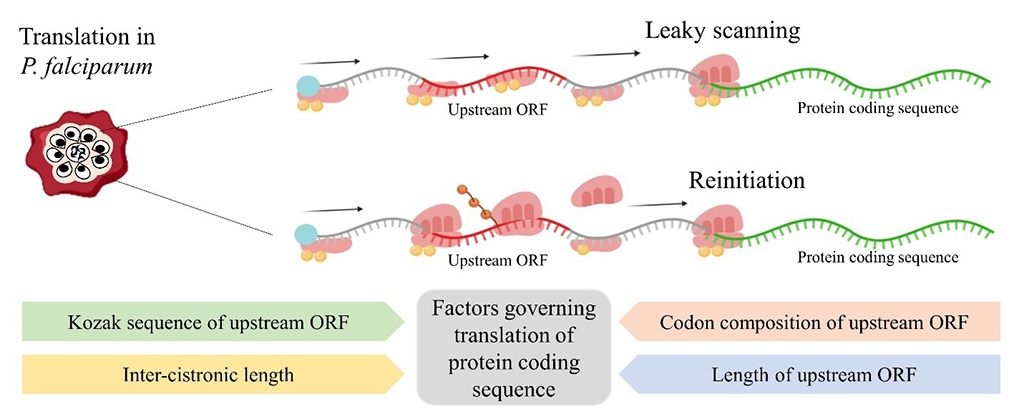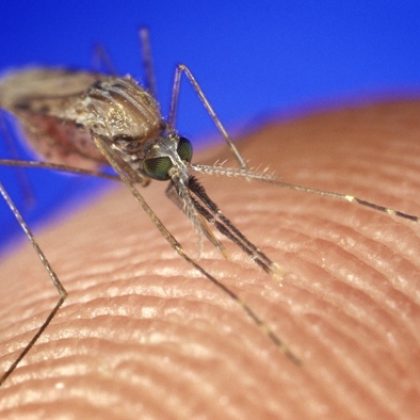How does the translation machinery of Plasmodium falciparum handle multiple upstream open reading frames?
The latest Paper of the Month for Parasitology is “Messenger RNAs with large numbers of upstream Open Reading Frames are translated via leaky scanning and reinitiation in the asexual stages of Plasmodium falciparum“
Malaria, an ancient disease, continues to infect millions of humans worldwide, with Plasmodium falciparum parasites being the causative agents of the majority of severe malaria cases and fatal outcomes. In this report, we study the translation machinery of P. falciparum, which is responsible for synthesising proteins using messenger RNAs (mRNAs) as templates, and is essential for the parasite to survive.
Interestingly, translation in the parasite has features that differ from those of the human host. One such feature found in parasite mRNAs is the presence of numerous, short protein coding regions that are encountered by the translation machinery before it reaches the main protein coding sequence. These short protein coding regions are repressive elements known as upstream Open Reading Frames (uORFs). On average, 11 uORFs are present in each P. falciparum mRNA, posing multiple hurdles for protein synthesis. However, despite this, the parasite’s translation machinery is able to bypass these repressive uORFs and synthesise desired proteins in the blood stages of the parasite life cycle.

We discovered that, in order to handle numerous uORFs, the translation machinery employs unconventional mechanisms such as ‘reinitiation’ and ‘leaky scanning’. We also identified various features of uORFs that control translation via these mechanisms. The widespread occurrence of these mechanisms that are rarely used by higher eukaryotes, including humans, may require proteins unique to the translation machinery of P. falciparum. Further studies to identify these parasite-specific proteins may lead to the discovery of novel drug targets to tackle the ancient scourge of malaria.
The article “Messenger RNAs with large numbers of upstream Open Reading Frames are translated via leaky scanning and reinitiation in the asexual stages of Plasmodium falciparum” by Chhaminder Kaur, Mayank Kumar and Swati Patankar published in Parasitology is available free for a month.
Photo credit: Above: Malaria-infected blood cell, courtesy of Shutterstock. Main text: courtesy of C. Kaur et al.






